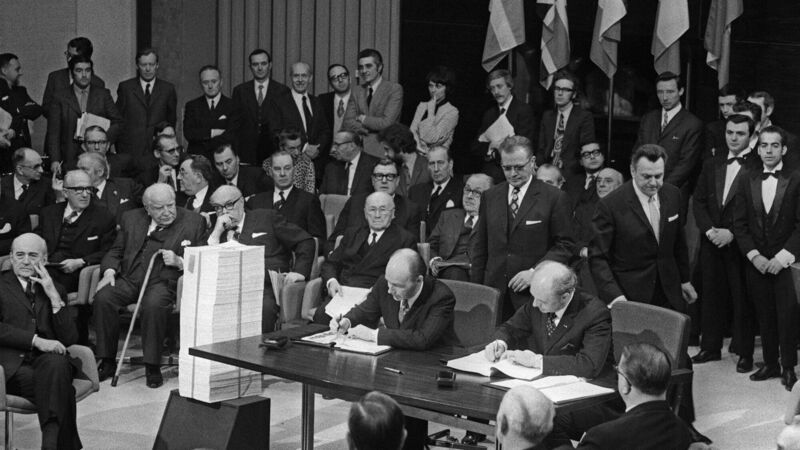Jack Power: Cause to celebrate Ireland's 50 years in EU

A photo taken on 22 January 1972 of the signing by Denmark, Ireland, Norway and the United Kingdom, of the Treaties of accession to the European Communities in Brussels. Picture: AFP via Getty Images
Fifty years ago, Ireland, along with Britain and Denmark, joined the European Economic Community (EEC), a freely-entered co-operative and the greatest steward of European peace and prosperity.
That leap of faith was as important as any, and far more important than most, in building a modern, confident Ireland capable of resolving its affairs with an energy, potential, and heft our forefathers could only imagine.














